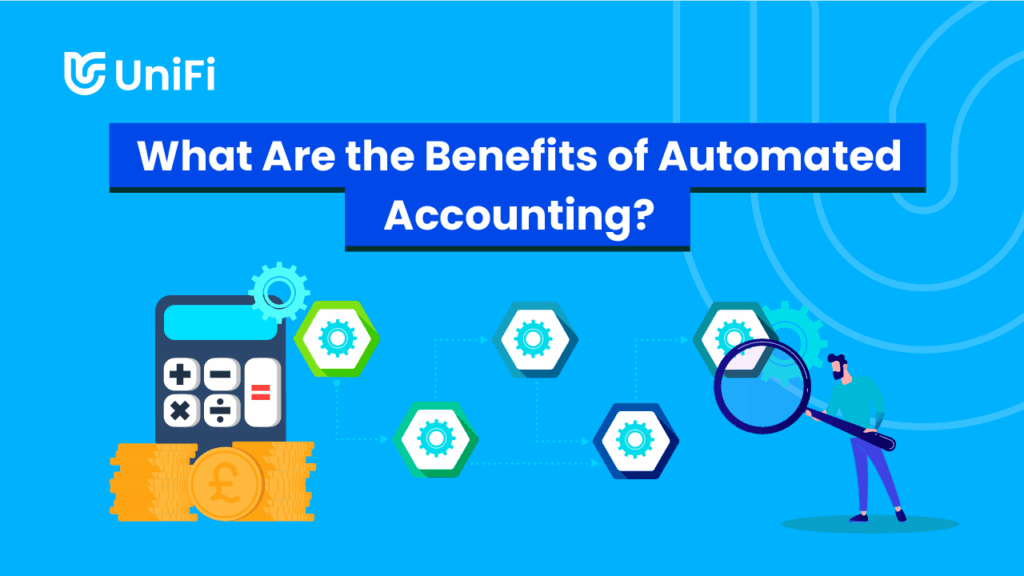As a financial and business management systems company with more than 25 years of experience, FinanSys, the creator of UniFi, has worked with hundreds of organisations globally.
During our work with these companies, we noticed a significant challenge faced by businesses: the reliance on multiple apps and add-ins to enhance and extend the capabilities of their financial systems.
This fragmented approach leads organisations to several issues, including juggling multiple systems, integration problems, and even increased costs.
In 2008, we began researching solutions to create a unified system that could handle all these requirements, eliminating the need for various disparate tools.
Fast forward to 2021, we soft-launched UniFi to our existing user base, aiming to provide a comprehensive platform that could replace all the add-ins and enhancements typically used to support finance or ERP systems.
One of the most unique and game-changing features of UniFi is what we call Accounting Automation.
This feature enables automatic journal posting at any process point, which we believe is at the core of automated accounting. It eliminates the need for re-keying or batch data export/import.
With financial transactions updated in real-time, the finance team can always see the most up-to-date data when entering or approving a transaction.
This unlocks a new level of efficiency and accuracy, redefining accounting automation and freeing your finance team to focus on strategic analysis and value-added activities.
So, what is automated accounting, and what are its benefits? Let’s discuss it.
What is Automated Accounting?
At its most basic, automated accounting involves using modern technology, such as artificial intelligence, machine learning, and robotic process automation, to streamline and automate financial processes.
It involves using advanced software systems that can perform tasks such as data entry, transaction processing, journal posting, and even financial reporting with minimal human intervention.
Essentially, automated accounting replaces manual and repetitive tasks with intelligent automated processes.
Benefits of Automated Accounting
There are numerous benefits of implementing automated accounting in your organisation. Let’s take a look at some of them:
Significant Increase in Efficiency
With automated accounting, tasks that previously took hours or days to complete can now be done within seconds or minutes.
If you’re in finance, you probably know how long it takes for the team to review each transaction and rectify any errors manually. With automated accounting, these tasks are done in real time, saving valuable time and eliminating human error.
This frees up time for the finance team to focus on more important activities. They can now analyse data, identify trends and patterns, and make strategic decisions based on accurate and timely information.
This level of efficiency allows for better performance and improved decision-making and sets up the finance team as a strategic partner within the organisation.
Cost Savings
Automated accounting can significantly reduce costs in several ways.
Firstly, it eliminates the need for manual data entry and processing, which translates to less time spent on these tasks and fewer errors. This results in cost savings on labour and potential penalties due to human errors.
Secondly, with real-time financial reporting, organisations can identify and address issues promptly, avoiding costly consequences down the line.
Lastly, automated accounting also reduces the need for physical storage of paper documents, saving space and reducing costs associated with printing and storage.
Enhanced Data Accuracy
Manual data entry is prone to human error, and even the most diligent individuals can make mistakes. This can lead to major discrepancies in financial records and reports.
With automated accounting, data is automatically transferred from one system to another, reducing the potential for errors.
Additionally, a platform like UniFi has built-in validation checks that flag any inconsistencies or duplicates, ensuring data accuracy.
This level of accuracy and reliability in financial data is crucial for decision-making and building trust with stakeholders such as investors and regulators.
Improved Security
Automated accounting also offers improved security measures compared to manual processes.
With digital records and real-time backups, organisations can minimise the risk of losing important financial information due to disasters or other unforeseen circumstances. They can also control access to sensitive financial data, limiting it only to authorised personnel.
Plus, automated accounting platforms have built-in security protocols and encryption methods to protect against cyber threats, reducing the risk of financial fraud or theft.
Enhanced Data Analytics
With traditional manual accounting processes, analysing large amounts of data can be time-consuming and tedious.
However, with automated accounting platforms like UniFi, organisations can easily generate reports and analyse financial data in real time.
The ability to quickly gather insights from financial data allows organisations to make informed decisions and identify areas for improvement.
Automated accounting systems can also track key performance indicators (KPIs), monitor cash flow and budgeting, and plan for future growth more effectively.
Real-Time Financial Monitoring
Real-time financial monitoring is another significant advantage of automated accounting systems.
By having the ability to continuously track financial transactions and account balances, organisations can maintain an up-to-date picture of their financial health.
This continuous monitoring helps in quickly identifying any discrepancies or unusual activities, allowing prompt corrective actions.
Whether it’s budget overruns or fraudulent transactions, real-time financial monitoring provides an added layer of protection for organisations to stay on top of their finances.
Streamlined Auditing Process
Auditing is a crucial process for any organisation to ensure compliance and maintain the accuracy and integrity of financial information.
With automated accounting systems, auditing becomes more straightforward and less time-consuming.
The system captures all financial transactions in real time, making it easier to track and review changes made to the records.
This eliminates the need for manual pulling of documents and receipts, reducing the chances of human error during the auditing process.
Moreover, with all data stored securely in one central location, auditors have easy access to necessary financial information without having to chase down physical records from various departments or locations.
Conclusion
The transition to automated accounting offers many benefits that can profoundly impact your business’s financial management.
From increased efficiency and accuracy to cost savings and improved compliance, the advantages are clear.
As technology continues to evolve, embracing automated accounting solutions will not only streamline your operations but also position your business for sustainable growth and success.
By integrating automated accounting into your financial processes, you can focus on what truly matters: driving your business forward.
Want to see UniFi’s automated accounting capabilities in action? Get a free demo now!


